Explore the best yellow bushes for San Antonio gardens, like Yellow Bells and Lantana. Get care tips for these low maintenance plants.
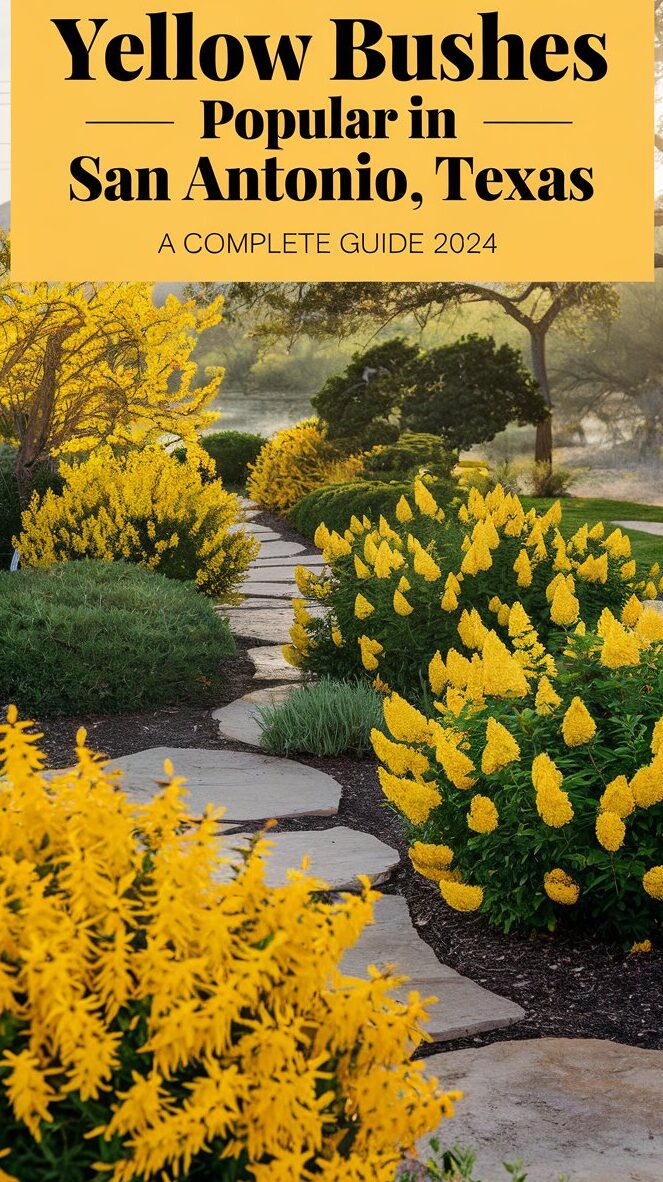
Hey there, fellow garden lovers! I’m Ashley Scott, and with 10 years of gardening experience under my belt, I’m excited to dive into one of my favorite topics: yellow bushes popular in San Antonio, Texas. If you’re looking to add a burst of sunshine to your yard, you’re in the right place. San Antonio’s hot, humid subtropical climate can be tough on plants, but these yellow beauties thrive here—and many are low maintenance plants for San Antonio, which is a huge bonus for busy folks like me.
In this blog, I’ll walk you through the best yellow flowering bushes for our area, share some handy care tips, and sprinkle in a few personal stories from my gardening adventures. Whether you’re after small yellow bushes, evergreen yellow bushes, or just want to know when to plant Esperanza in Texas, I’ve got you covered. Let’s get started!
Why Choose Yellow Bushes for Your San Antonio Garden?
So, why go for yellow bushes? Well, for starters, they’re like little rays of sunshine that brighten up any space. In San Antonio, where summers sizzle and winters are mild, these plants don’t just look good—they’re tough enough to handle our weather. Many are drought-tolerant and heat-resistant, making them perfect low maintenance plants for San Antonio.
Plus, yellow flowers are a magnet for pollinators—think bees, butterflies, and hummingbirds. I love watching my garden come alive with these visitors! And from a design standpoint, yellow blooms pair beautifully with purples or blues, creating eye-catching contrasts. Ready to meet the stars of the show? Let’s dive into the top yellow bushes popular in San Antonio, Texas.
Top Yellow Bushes Popular in San Antonio, Texas
Here’s my roundup of the best yellow bushes that thrive in our region. I’ve picked these based on their popularity, beauty, and how well they adapt to San Antonio’s climate. Each one’s a winner in my book!
1. Yellow Bells (Tecoma stans)
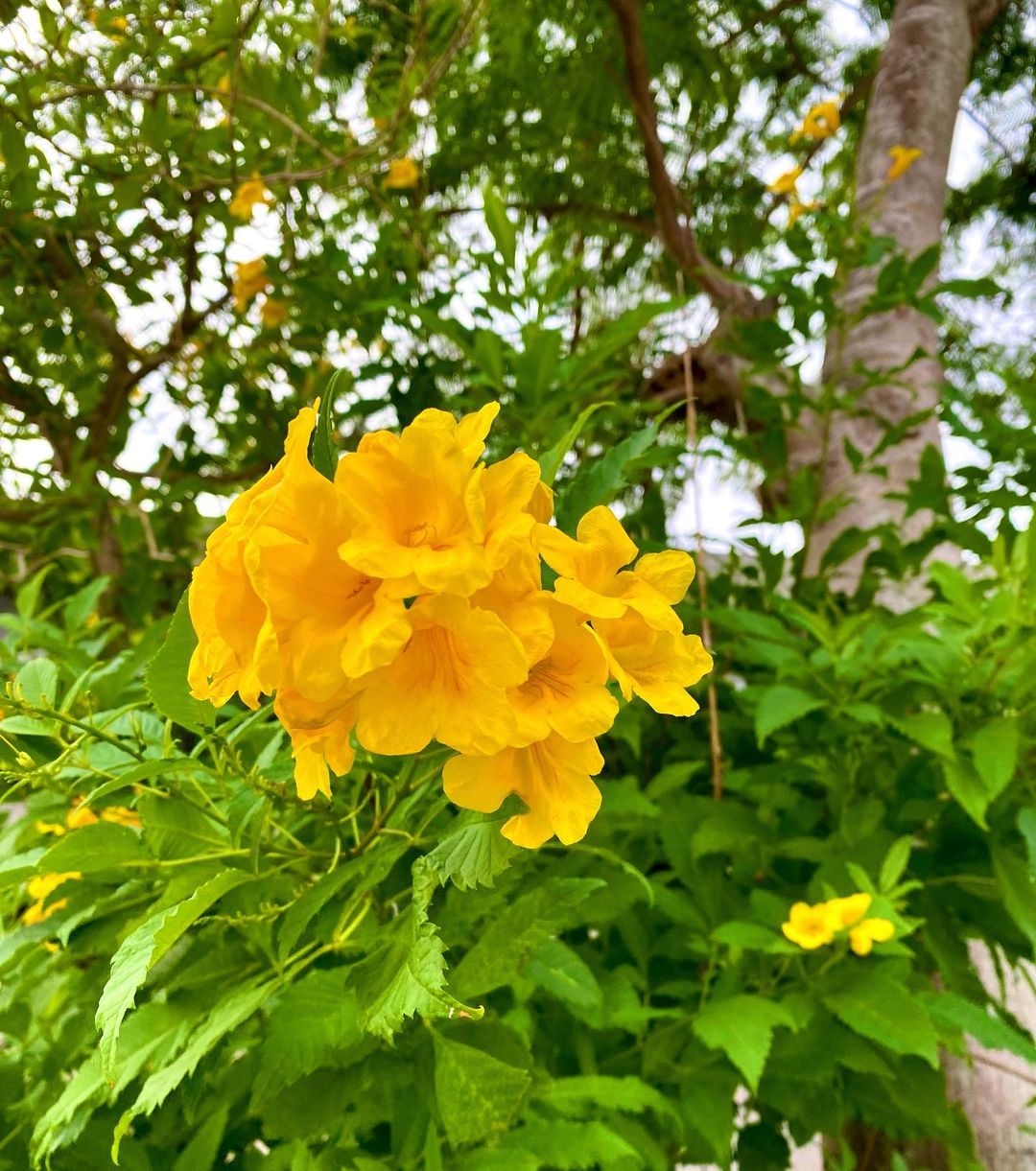
First up is Yellow Bells (Tecoma stans), also known as Esperanza or Yellow Elder. This Texas native is a showstopper with its bright yellow, trumpet-shaped flowers that bloom from spring through fall. Depending on the variety—like the popular Gold Star Esperanza (Tecoma stans ‘Gold Star’) or Yellow Elder (Tecoma stans var. angustata)—it can grow from 3 to 20 feet tall. The ‘Gold Star’ version is a fan favorite because it starts blooming early and keeps going strong.
- Blooming Season: Spring to fall
- Size: 3-20 ft. tall, 3-10 ft. wide
- Sun and Soil: Full sun, well-drained soil
- Water Needs: Moderate at first, then drought-tolerant
- Special Features: Attracts hummingbirds and butterflies, deer-resistant
I planted a Gold Star Esperanza in my front yard last year, and let me tell you, it was a neighborhood hit when those golden blooms popped out in early summer. It’s super easy to care for—just give it full sun and don’t overwater once it’s settled in.
2. Lantana (Yellow Varieties)
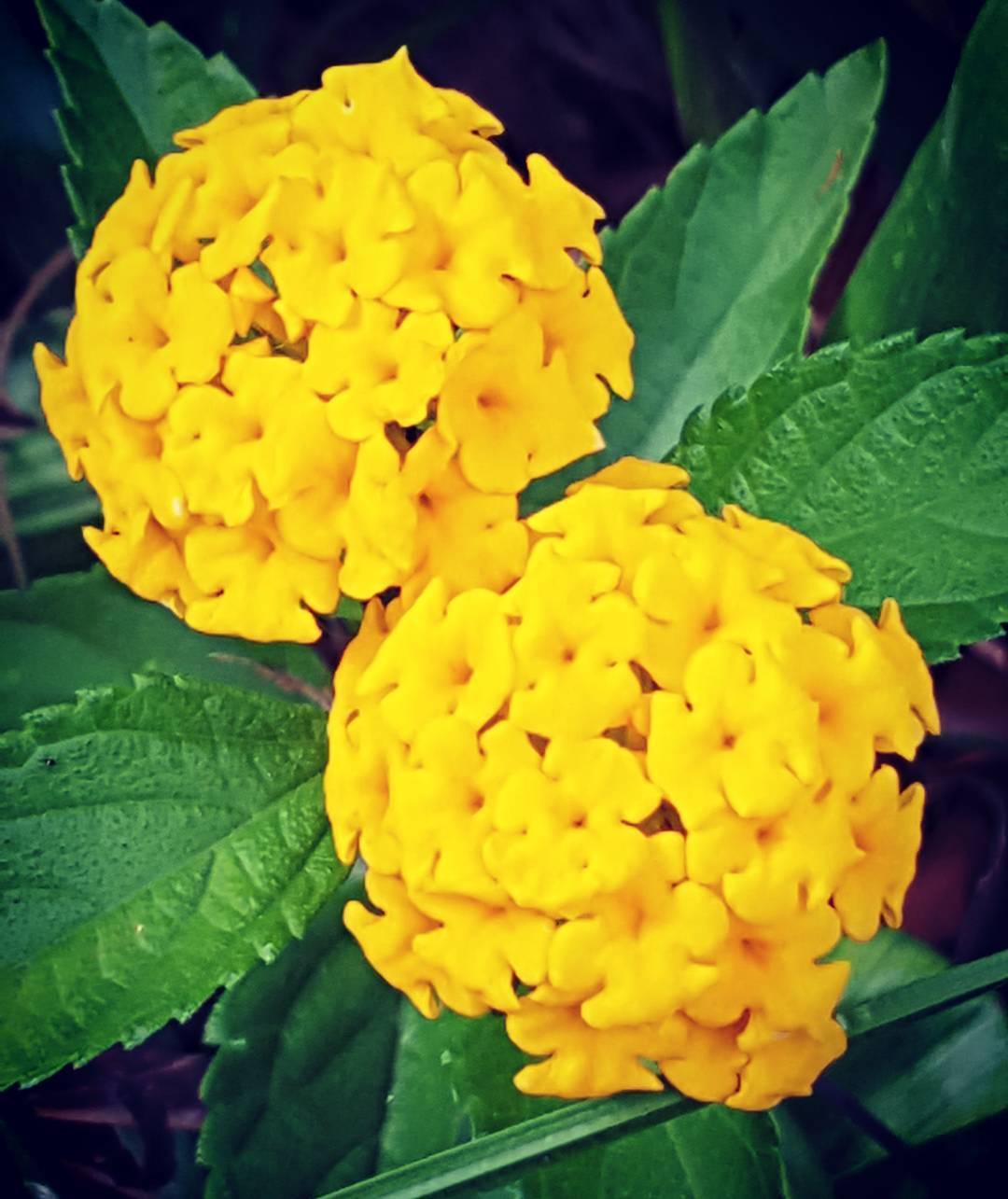
Lantana is a total rockstar in Texas gardens, and the yellow varieties are extra special. These bushes come in upright or trailing forms, so they’re versatile—think borders, containers, or ground covers. They bloom almost year-round here, which is amazing!
- Blooming Season: Year-round (peaks in spring/summer)
- Size: 1-6 ft. tall, 2-4 ft. wide
- Sun and Soil: Full sun, well-drained soil
- Water Needs: Low once established
- Special Features: Attracts butterflies, deer-resistant
If you’re after small yellow bushes popular in San Antonio, Texas, check out dwarf varieties like ‘New Gold’. Lantana’s so tough, I’ve spotted it thriving in parking lot medians—proof it can handle anything!
Esperanza Flower : Growing and Caring for the Vibrant Yellow Bells
3. Desert Senna (Senna sturtii)
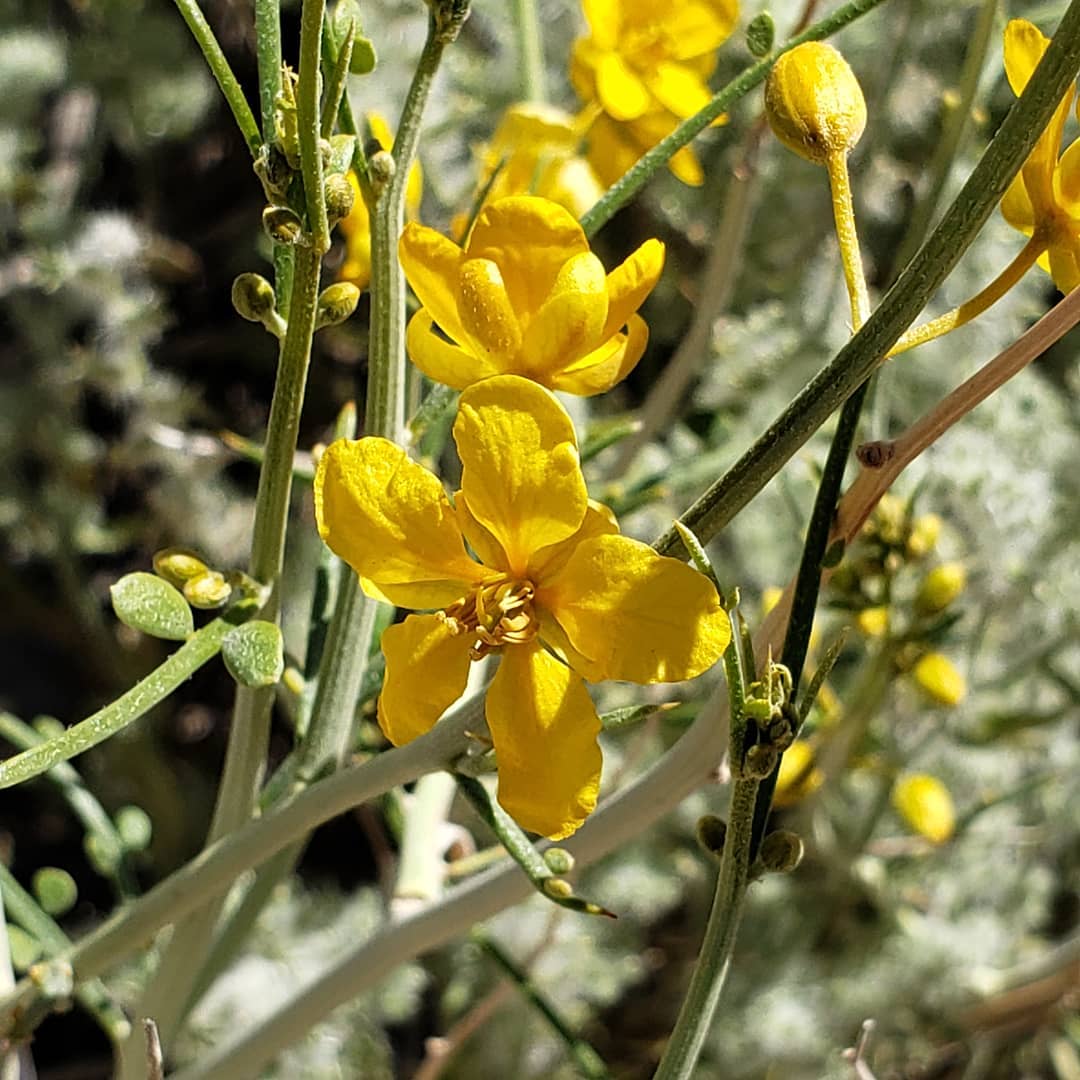
Desert Senna (Senna sturtii) might not be as well-known, but it’s a hidden gem. I first saw it near the San Antonio Botanical Garden, and its golden-yellow flowers totally grabbed my attention. It stays compact at 2-3 feet tall, perfect for smaller spaces.
- Blooming Season: Spring
- Size: 2-3 ft. tall, 2-3 ft. wide
- Sun and Soil: Full sun, well-drained soil
- Water Needs: Very low once established
- Special Features: Drought-tolerant, great for xeriscaping
This one’s a dream for low-water gardens. It blooms in spring and then chills out, requiring almost no upkeep.
4. Mexican Bird of Paradise (Caesalpinia mexicana)
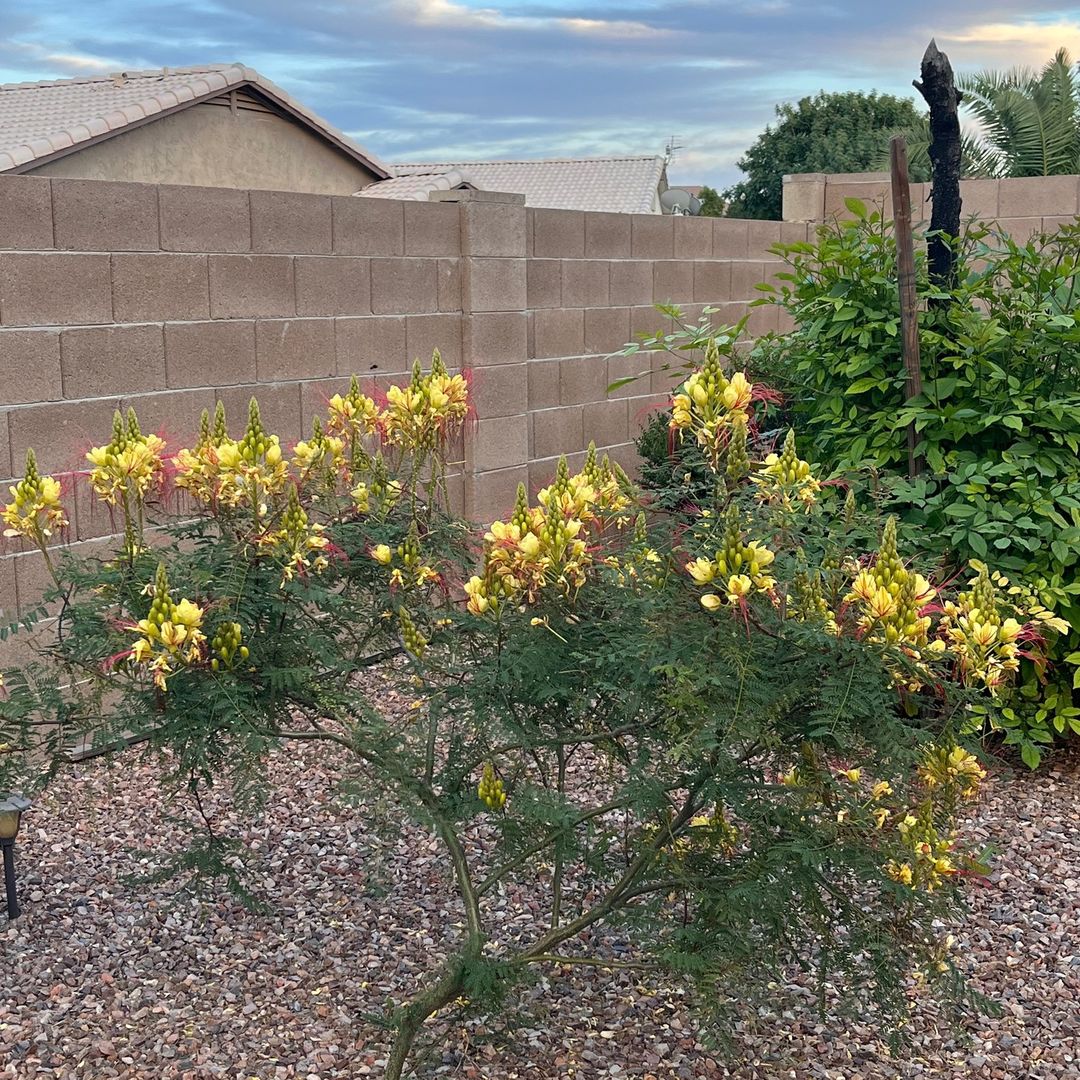
Next, we’ve got Mexican Bird of Paradise (Caesalpinia mexicana). This beauty brings a tropical vibe with its yellow flowers and red stamens, blooming from spring to fall. It can reach 6-10 feet tall and wide, making it great as a screen or a standout solo plant.
- Blooming Season: Spring to fall
- Size: 6-10 ft. tall, 6-10 ft. wide
- Sun and Soil: Full sun, well-drained soil
- Water Needs: Moderate initially, then low
- Special Features: Heat-tolerant, attracts pollinators
This one loves the heat, which is perfect for San Antonio summers. Its feathery leaves add a soft touch, and the pollinators adore it. I’ve seen it thrive in some pretty tough spots with minimal fuss.
Bird of Paradise(Strelitzia reginae) : Growing Exotic Beauty at Home
5. Thryallis (Galphimia glauca)
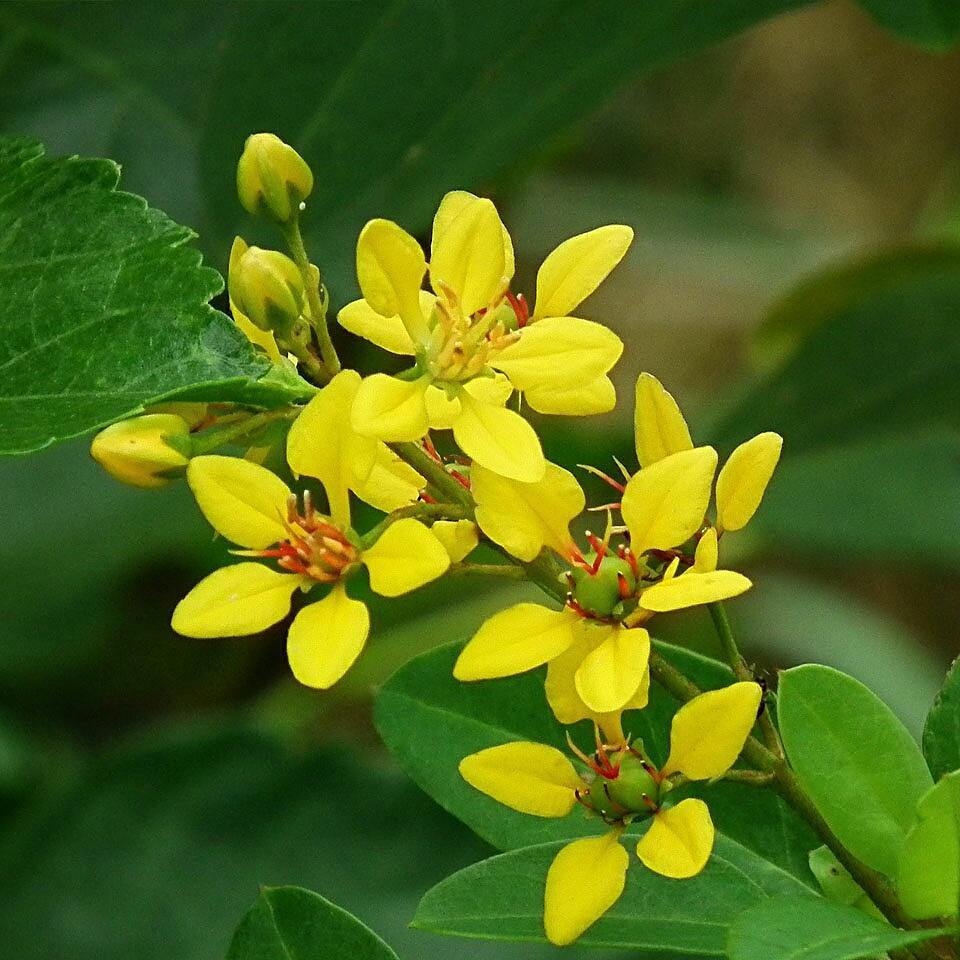
Thryallis (Galphimia glauca) is a stunner with long clusters of yellow flowers from late spring to fall. It grows to about 4-6 feet and stays evergreen in our mild winters, which I love for year-round greenery.
- Blooming Season: Late spring to fall
- Size: 4-6 ft. tall, 4-6 ft. wide
- Sun and Soil: Full sun to partial shade, well-drained soil
- Water Needs: Moderate, then low
- Special Features: Evergreen, pest-resistant
It’s a fantastic pick if you’re after evergreen yellow bushes popular in San Antonio, Texas. I once overwatered mine (oops!), but after adjusting, it bounced back beautifully.
6. Goldenball Leadtree (Leucaena retusa)
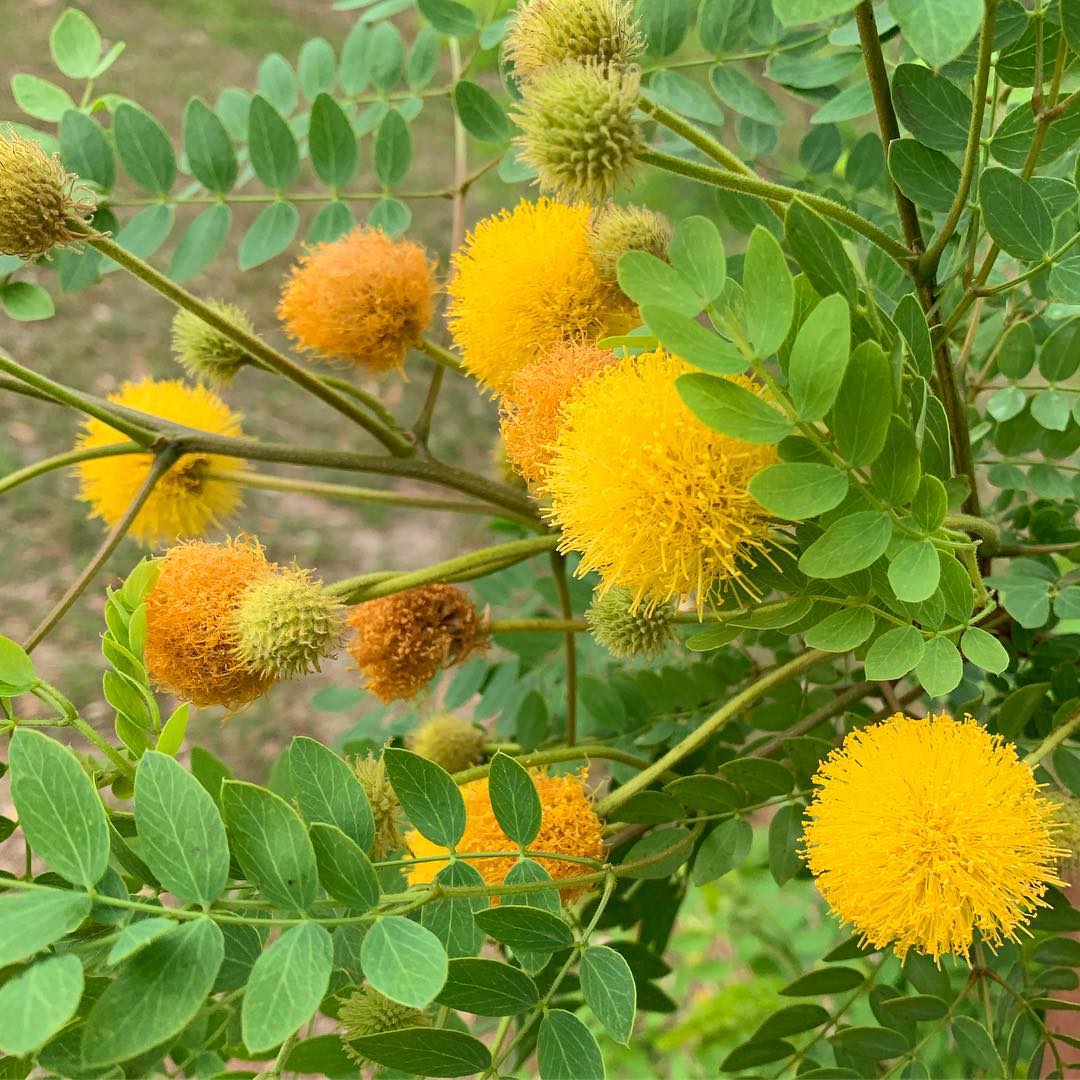
Rounding out the list is Goldenball Leadtree (Leucaena retusa). This one’s more of a small tree or large shrub with cute yellow puffball flowers from April to October. It can hit 15-25 feet but is often pruned smaller.
- Blooming Season: April to October
- Size: 15-25 ft. tall, 10-15 ft. wide
- Sun and Soil: Full sun, well-drained soil
- Water Needs: Low once established
- Special Features: Drought-tolerant, light shade provider
It’s awesome for xeriscaping or adding some height to your garden. Plus, it’s tough enough for our rocky soils.
Quick Comparison of Yellow Bushes
Here’s a handy table to compare these beauties:
Plant NameHeightWidthBlooming SeasonSunWaterSpecial FeaturesYellow Bells (Tecoma stans)3-20 ft.3-10 ft.Spring to fallFull sunLowHummingbirds, deer-resistantMexican Bird of Paradise6-10 ft.6-10 ft.Spring to fallFull sunLowTropical, heat-tolerantLantana (Yellow Varieties)1-6 ft.2-4 ft.Year-roundFull sunLowButterflies, deer-resistantDesert Senna2-3 ft.2-3 ft.SpringFull sunVery lowCompact, xeriscapingThryallis4-6 ft.4-6 ft.Late spring to fallFull/part shadeLowEvergreen, pest-freeGoldenball Leadtree15-25 ft.10-15 ft.April to OctoberFull sunLowShade, erosion control
How to Care for Yellow Bushes in San Antonio
These bushes are pretty easygoing, but here’s how I keep them thriving:
Planting
- When to Plant Esperanza in Texas: Fall or early spring is ideal. I prefer fall because the roots get a head start before summer heat hits.
- Soil: They all love well-drained soil. Add compost if your soil’s heavy clay.
Watering
- First Year: Water regularly to establish roots.
- Later: Most are drought-tolerant—perfect for San Antonio’s dry spells.
Pruning
- Timing: Late winter or early spring, before new growth.
- How: Light trims for shape. Lantana can take a harder cut to refresh it.
Fertilizing
- Less is More: A slow-release fertilizer in spring works. Too much, and you’ll get leaves instead of flowers.
Pests
- Watch Out: Aphids or spider mites might pop up. I use neem oil if needed.
For more tips, check out Texas A&M AgriLife Extension.
Yellow Bushes Popular in San Antonio, Texas in Winter
Wondering about winter blooms? Most of these peak in spring to fall, but:
- Thryallis: Stays green all year in mild winters.
- Lantana: Might bloom during warm spells.
- Tecoma stans: Some varieties, like certain Esperanzas, can keep leaves or even flower a bit in winter.
For true winter yellow, Winter Jasmine could work, but it’s less common here.
Design Ideas with Yellow Bushes
- Contrast: Pair with purple Texas Sage for a wow factor.
- Borders: Use dwarf yellow bushes like Lantana ‘New Gold’ along paths.
- Pollinators: Mix with other nectar plants—see my post on Attracting Butterflies.
Where to Buy in San Antonio
Grab these at:
- Rainbow Gardens
- San Antonio Botanical Garden
- More local spots in my Nurseries Guide.
Final Thoughts
These yellow bushes popular in San Antonio, Texas are a fantastic way to brighten your garden with minimal effort. From my Esperanza plant stealing the show to Lantana’s nonstop blooms, they’ve brought me so much joy. Try one—or all!—and let me know how it goes in the comments!
Happy gardening!
